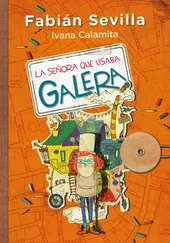Zé. Are you originally from Garopaba?
Yep.
Have you always lived here?
Almost always. I lived in São Paulo for a few years.
In the late sixties my granddad lived here for a while. They used to call him Gaudério. Ever heard of him?
Gaudério, Gaudério…
Zé is silent for a while, then turns and heads into the bar saying he is going to get his wife. His wife is wearing an orthopedic collar around her neck and asks who he is and why he wants information about his grandfather. He says he is just investigating a family story, out of curiosity. She asks if he’s been asking around about his grandfather, and when he says yes, that he has asked a few people, she wants to know who. Zé’s wife doesn’t smile, but she doesn’t give off any aggression either. She seems to be studying him, even turning her head a little to the side, in spite of the collar. Sometimes he has the urgent feeling that he should memorize for all time the faces of certain people who don’t mean anything to him and who he will probably never see again in his life — a pharmacy attendant, someone’s cousin who goes to a party and is only passing through town, another patient sitting in the dentist’s waiting room. This urge is never justified in the future, at the end of the day, or at least he doesn’t remember it ever having been justified, but when it arises it feels imperative, as is the case now, looking at this woman with her neck immobilized and without any distinguishing facial or physical characteristic, a woman made not to be remembered or even imagined. He decides to lie. He doesn’t remember who he asked. Just one or two people he didn’t know in the fishing village. She doesn’t say anything else and disappears again through the back door of the bar, allowing him a glimpse of a living room with a threadbare sofa and blue walls. The bar is suddenly dark. Night has fallen. Zé leans both arms on the counter and lowers his voice.
Don’t worry about her. I remember Gaudério.
Did you know him?
No, I just remember him. He lived on a small property near the parish church, over where the residential subdivision is now. I wasn’t even twenty when he passed through here. He once gave my brother some money to fix his bike, a brown Barra Forte that he used to ride.
What’s your brother’s name?
Dilmar.
Any chance I could talk to him?
No. He passed away.
Is it true my granddad was murdered here?
I don’t know. But don’t go around asking that kind of thing.
Why not?
Because you don’t talk about that kind of thing. It doesn’t matter if it happened or not. People don’t know certain things after some time has passed because they don’t want to. Do you follow?
He stares at Zé for a moment, then nods.
You’re a good kid. Let it go. And come back here to shave that beard off when you get tired of it.
Will do.
Take care.
Thanks, you too.
Now I know why I thought I knew you from somewhere.
What do you mean?
You really look like Gaudério.
Yeah, I know.
The penny will drop for some people. It probably already has.
No one remembers him. It’s as if he never existed.
There are some who’ll remember. If they want to. To remember you have to want to.
But why wouldn’t people here want to remember him?
It doesn’t matter. Just remember what I told you.
Thanks for your concern. But I think I need to get to the bottom of this.
This place is blessed. So much beauty everywhere you look. Right, gaucho? A person can be really happy here.
T he cold nights torture the summer with a slow death. Dália rests her cup of coffee on her legs, which are extended on the small canvas sofa in the living room, as she stares through the window at the crystalline surface of a lazy sea that looks as if it is stretching, like them, waiting for the sun to come up and warm it. He is sitting on the fabric sofa pushed up against the opposite wall, but the room is so small that they could touch hands if they held out their arms. He looks at Dália in profile, her curly hair, the delicate features in a broad face, the upturned crest of her top lip backlit by the light from outside. He enjoys in silence the pleasure of being in the presence of such a beautiful woman. He maps the circumstances that put her there as if they were of his own doing. Outside, local children run past, laughing euphorically and shouting, wearing only bathing suits, carrying pieces of wood and primitive fishing rods, packets of cookies and colorful plastic buckets, and staring unashamedly through the window into the apartment. The sky is blue, but he can somehow tell it is going to rain later. Several weeks in Garopaba have enabled him to make this kind of intuitive meteorological reading based on signs that he still can’t put a finger on: the direction of the wind, the humidity inside the apartment, the behavior of the birds, the background noise of the ocean. Dália uses her big toe to turn on the tiny television set on the chest of drawers near the window, and says she wants to watch the morning cartoons. A popular talk-show host appears on the screen and warns her that the TV will turn itself off in a minute at the most, which is exactly what happens. It has been like this since his second week in the apartment. Cecina explained that it is a common problem caused by the same salty ocean air that has already started to rust the barbecue knife that he got as a present from his father and to cover all surfaces with a slippery film that corrodes all kinds of metal at an alarming speed no matter what anyone does to protect them. The door is open, and he hears Beta’s firm footsteps, as her long nails rasp on the cement outside and then the beige-tiled floor of the living room. He snaps his fingers, whistles, and calls her, almost simultaneously, because he isn’t really sure how she likes to be called now that his father’s familiar gestures are no longer there for her. In the last few days she has responded to his calls more enthusiastically and accompanies him on walks without the need of a leash. He likes the responsibility of looking after her, the objective simplicity of his mission to cheer her up and keep her alive. She comes over, and he pats her head and runs his hand over the short, thick fur on her back, which is a dark blue-gray spattered with rust-colored spots.
Scratch the back of her head, says Dália. She likes it.
How do you know? My dad didn’t do that.
Beta, Beta, come here.
The dog immediately goes over to Dália. Dália grabs her by the skin at the scruff of her neck and holds her up in the air, a maneuver that to him seems violent, inappropriate for an adult animal.
Don’t do that. You’ll hurt her.
It doesn’t hurt. You don’t know dogs.
Dália sits Beta on her thighs.
That’s how her mother used to carry her when she was a puppy, wasn’t it, Beta? Tell him, girl.
She vigorously rubs the back of the dog’s head, grabbing the loose skin there and massaging it with her fingertips. Beta curves her neck forward and closes her eyes.
See? All dogs love it. They remember their mothers when you rub them here.
His cell phone rings. He goes to get it from the kitchen counter.
Guess who.
Hello, Mother. Not exactly quantum physics.
He goes outside to take the call. It is a replay of all their recent conversations. It starts with a few practical questions about probate, the inheritance, debts, and what to do with one of his father’s belongings, and soon progresses to her asking him to go to Porto Alegre for something and comparing him to his older brother in some way, always favoring the latter and accompanied by a failed attempt to hide what she really thinks. He tries to let it go but ends up protesting, and there is a joint effort to quickly finish the conversation so as not to end it in a really unpleasant way. Before hanging up, she asks if he intends to come home for Mother’s Day. He is irritated by the word choice of come home, and she says it’s just an expression and that he doesn’t need to get worked up. He says he isn’t worked up and really doesn’t feel that way. A better description for what he feels would be tired . He says he still doesn’t know and will think about it and let her know closer to the date. Right after he hangs up, he realizes that this will be the first time she won’t be taken out for lunch on Mother’s Day. The person who has fulfilled this function in recent years is him. He almost calls her back.
Читать дальше












